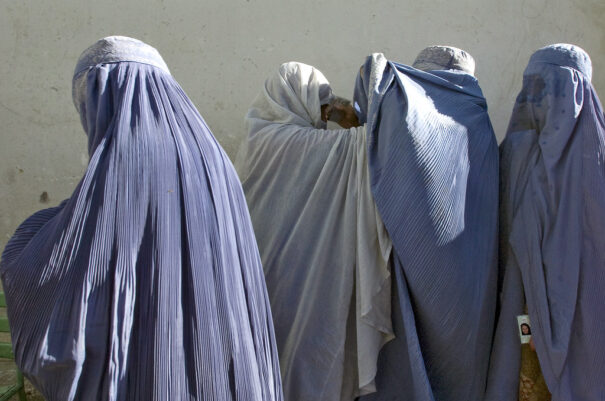
Photo by by United Nations Photo
On June 18, the United Nation’s Special Rapporteur on the human rights situation in Afghanistan, Richard Bennett, presented a mandated report to the U.N.’s High Commissioner for Human Rights. The report states that the “phenomenon of an institutionalized system of discrimination, segregation, disrespect for human dignity and exclusion of women and girls,” is Gender Apartheid. The report also brought to light the numerous human rights violations being committed against women and girls in Afghanistan by the Taliban. Over 100 edicts have been issued by the Taliban harshly restricting the rights of women and girls. These edicts ban girls from education beyond the 6th grade, from leaving their home without a male chaperone, and from accessing employment opportunities — excluding them from participating in all areas of public life.
In the report, Bennett makes it clear — the Taliban is currently engaging in Gender Apartheid. The term Gender Apartheid is defined by the report as “the institutionalized and systematized nature of the exclusion of and discrimination against women and girls…apartheid regimes enshrine and enforce a complex system of governance–of laws, policies, and practices–to systematically oppress and dominate a subset of society over the course of decades and generations.”
The labeling of the human rights abuses against women as a Gender Apartheid by the U.N. Special Rapporteur demonstrate the severity of the treatment Afghan women face every day. It also aims to highlight the duty of states to intervene and take action in the protection of Afghan women — much like the international community did during the South African racial apartheid — rather than normalizing the rule of the Taliban.
The Gender Apartheid in Afghanistan consists of a multitude of policies and practices that flagrantly deny women and girls human rights protected by international treaties. The report by Special Rapporteur Bennett highlighted four rights being violated in Afghanistan as a part of the Taliban’s Gender Apartheid policies: the right to education, the right to work, freedom of movement, and the right to healthcare. These four rights covered in the report only scratch the surface of the current human rights situation in Afghanistan, and while they are listed separately, the document notes explicitly, “This report illustrates how these deprivations do not exist independently of each other. Rather, each deprivation systematically informs and interacts with the other(s), creating a complex convergence of oppression.”
The Feminist Majority Foundation is participating in a campaign to Stop Gender Apartheid in Afghanistan, actively advocating for the human rights of Afghan women and girls. Afghan women and girls have persisted in opposing this rule of Gender Apartheid, and we will not stop supporting them in the fight against this outrageous restriction of human rights.
The first step towards restoring the rights of Afghan women and girls is the continued non-recognition of the Taliban and the denormalization of their rule. Actions such as the third meeting in Doha on June 30th with the Taliban only serve to grant the Taliban and their actions against women legitimacy by the international community. Afghan women were not allowed to participate in the meeting due to the demands of the Taliban, resulting in passionate protests by some Afghan women leaders.
Edited: July 2nd, 2024
Source: UN Special Rapporteur’s report
